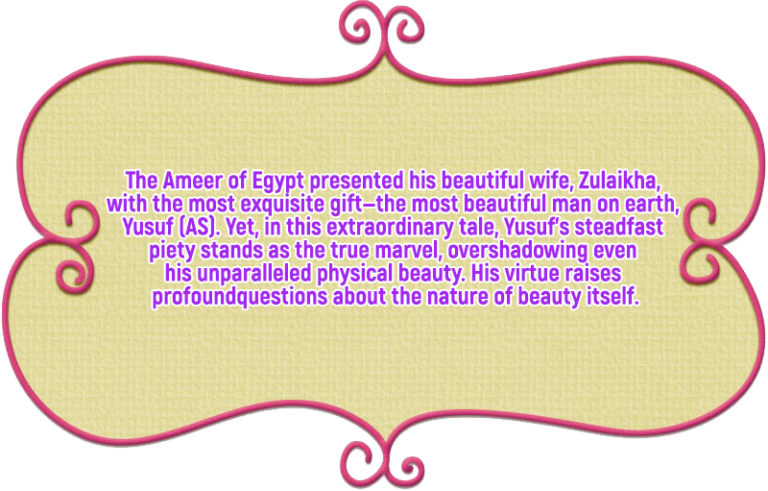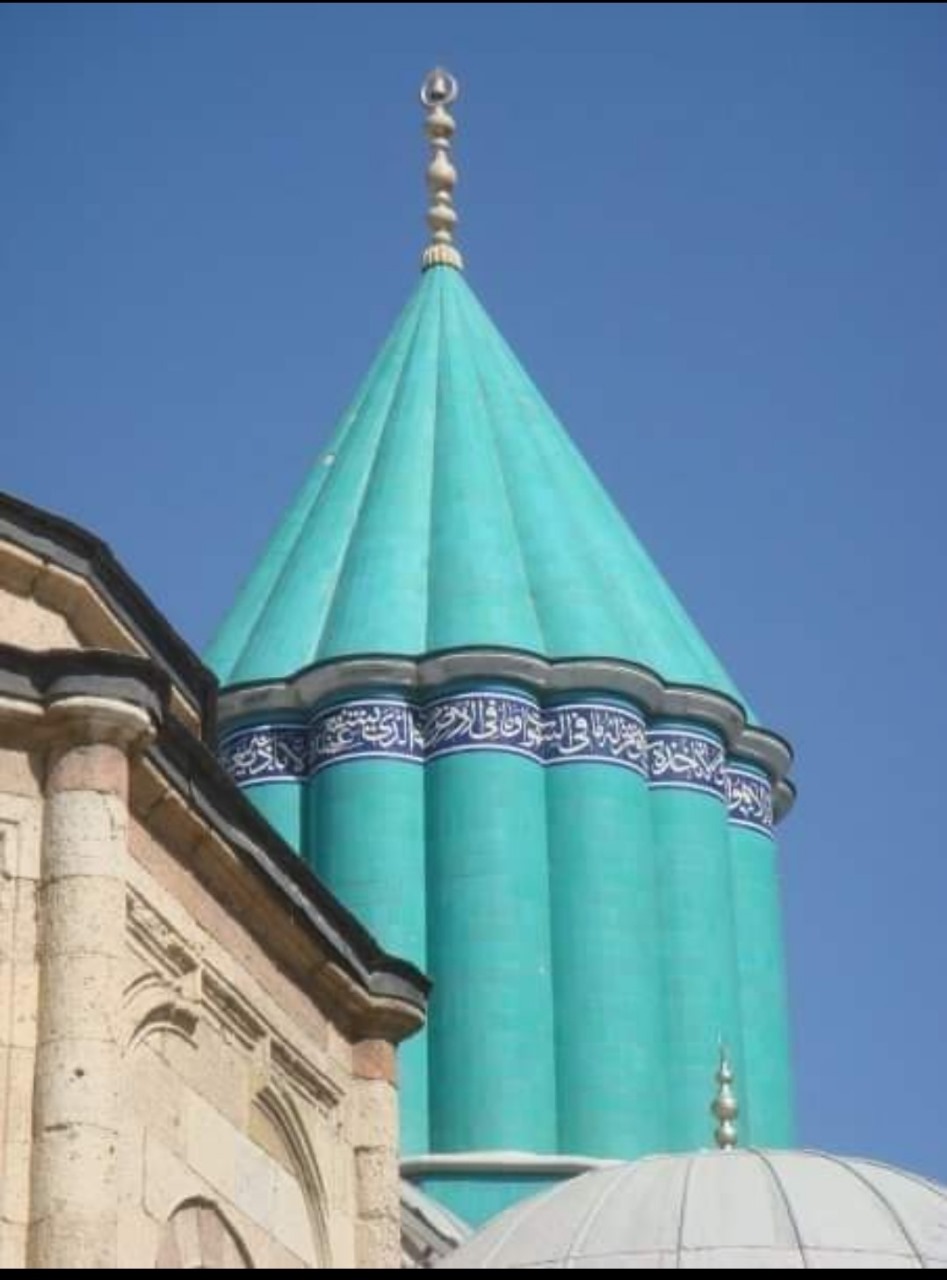The Story of Hazrat Yusuf (as)

Life is the most precious gift bestowed upon humanity by Allah. But can we truly do justice to its beauty? Are we capable of appreciating and cherishing the blessings it brings? Or does the pursuit of beauty become too burdensome?

What of Zulaikha? Can beauty, when detached from piety, hold true meaning? Does it have lasting worth? History and human experience suggest that beauty without moral grounding is fleeting and often hollow. It is piety and virtue that transform beauty into something meaningful and enduring.
Beauty, especially when confined to the physical realm, can sometimes lead to unexpected suffering. Without a spiritual dimension to balance it, beauty may incite envy and resentment, as seen in the story of Hazrat Yusuf (AS), who faced his brothers’ jealousy due to his unparalleled charm.
The loss of beauty, whether physical or metaphorical, often brings profound sorrow. It can leave one feeling desolate, as Zulaikha did when time stole her youthful allure. In the broader scope of life, the loss of beauty can overshadow other blessings, creating a void of pain and regret. Hazrat Yaqoob (AS) endured this when the absence of his beloved son Yusuf consumed him with grief. His ability to love his other children faded in his sorrow, and he was even rendered physically blind. His healing came only upon reuniting with Yusuf—a reminder that beauty, in its deepest sense, holds the power to restore and heal.
True beauty, then, resides in the harmonious fusion of the physical and the spiritual, manifesting in the ability to embrace life’s blessings with gratitude and balance. This ideal finds its perfection in the character of Hazrat Yusuf (AS), whose story exemplifies the pinnacle of beauty, grace, and virtue. The Qur’an celebrates his narrative in one of the most illustrious ways, highlighting its many profound aspects—his physical beauty, unwavering patience, moral fortitude, and deep connection with Allah. The story transcends time, offering lessons in resilience, forgiveness, and the ultimate triumph of faith over adversity.
This reflection extends further: Can a civilization thrive without morality? Beauty and progress, in the absence of ethical principles, can lead to chaos and destruction. True civilization is built not on outward allure but on the foundation of righteousness, justice, and humility.
In the grander scheme of life, a fundamental question arises: What is more sacred—human willfulness or submission to God’s Will? The story of Yusuf (AS) demonstrates that surrendering to Allah’s plan brings honor, fulfillment, and divine favor, while unchecked human desires often lead to ruin. Yusuf’s ability to remain pious amidst temptation and hardship exemplifies the ultimate beauty: a heart aligned with God’s Will.
Rumi, too, in his unparalleled style, reimagines and narrates the tale of Hazrat Yusuf (AS), weaving spiritual and poetic layers into the narrative. Through his verses, Rumi explores the deeper meanings of love, longing, and divine connection, inviting readers to reflect on the eternal essence of true beauty that transcends mere appearance.

A window to Mathnavi Maulvi Ma’nvi
Translation and Commentary Seema Arif
Further Links for Rumi
ExploreThe Story
Further Links
( Copyright 2024 ) Dr. Seema Arif All rights reserved.
All material on this page is Seema Arif’s original writing. Using it in any form of publication and print media without prior permission will be considered a violation of rights. When quoting research papers, proper referencing should be used.







